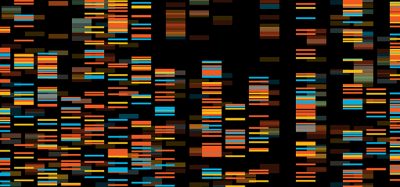Protective mutation found in kidney disease gene
Posted: 17 October 2023 | Drug Target Review | No comments yet
A new discovery about a different protective genetic mutation in apolipoprotein L1 could have major implications for kidney health.

Published in the Journal of the American Society of Nephrology, findings on the apolipoprotein L1 (APOL1) gene could have immediate and widespread implications for kidney health, as people with both the disease-causing and protective mutations are not at increased risk.
It has long been known that African Americans are at an increased risk of kidney disease due to a dangerous genetic mutation that creates a hole in the kidney cells. However, researchers at Vanderbilt University Medical Center (VUMC) have discovered a protective genetic mutation that covers the hole to remove the risk.
Senior author Dr Alexander Bick, Assistant Professor of Medicine, Division of Genetic Medicine, said: “Our team discovered a different protective genetic mutation in APOL1 that counteracts the disease-causing mutation.” He continued: “We performed experimental studies and found that the harmful mutation creates a hole in kidney cells. Our protective mutation blocks the hole.”
“There are medicines in late-stage clinical development that block the APOL1 hole just like our protective mutation does. Our study shows that these targeted personalized medicine drugs are likely to be a successful treatment strategy. Our results also identify a set of patients with both the harmful and protective APOL1 mutation who would not need this treatment,” Dr Bick said.
The huge human genomic study analysed 150,582 participants with African ancestry from the Million Veteran Program (MVP), BioVU (VUMC’s de-identified DNA databank) and the All of US Research Program, the NIH’s historic effort to collect and study data from 1 million or more people living in the United States to accelerate health research.
Dr Adriana Hung, lead author and Associate Professor of Medicine, Division of Nephrology and principal investigator for the kidney disease grant for the Million Veteran Program from the Department of Veterans Affairs, explained: “The results of our study have immediate and broad implications for kidney health.” She also said: “Individuals with African descent and Latinos have a four-fold increase in the risk of progressing to end stage renal failure, which is partially explained by of APOL1 G1/G2 high risk variants.”
“Additionally, kidney donors with APOL1 high risk variants are also at an increased risk of kidney disease, hence reducing the pool of kidney donors. Interventions to decrease these long-standing inequities in kidney health have been desperately needed,” she noted.
The role of APOL1 high risk variants are now being evaluated in different settings to understand the overall population that will benefit from pharmacologic inhibitors that mimic the genetic mutation by blocking the APOL1 pore formation and ion channel conduction.
“Our study represents an important step forward in precision nephrology,” Dr Hung said. “It is an extraordinary example of how human genomics studies translated into the discovery of new treatments.”
Related topics
Genomics, Precision Medicine, Targets
Related conditions
Kidney disease
Related organisations
Vanderbilt University Medical Center (VUMC)
Related people
Dr Adriana Hung (VUMC), Dr Alexander Bick (VUMC)







